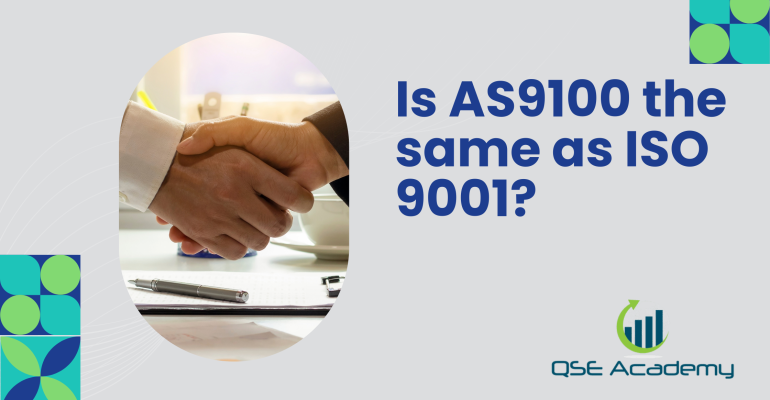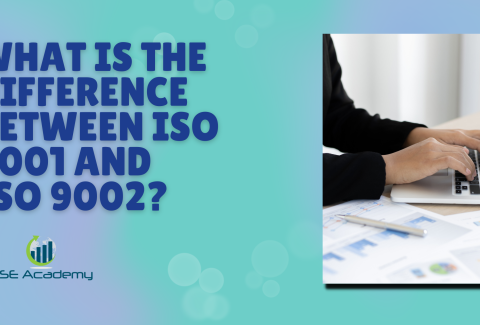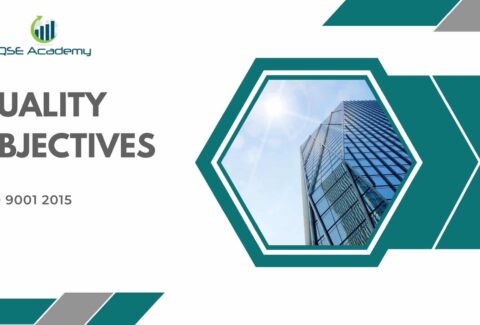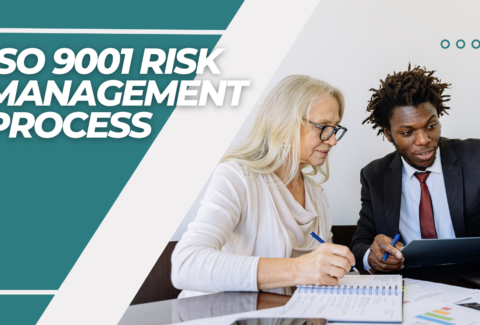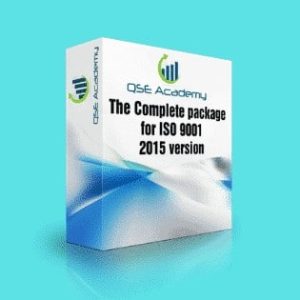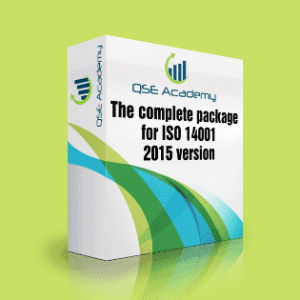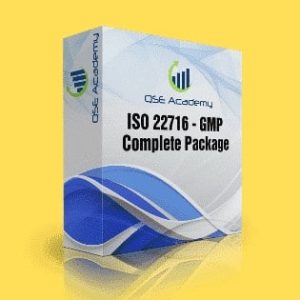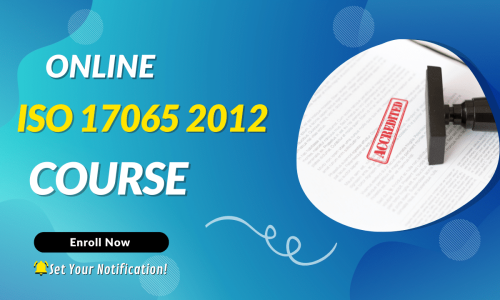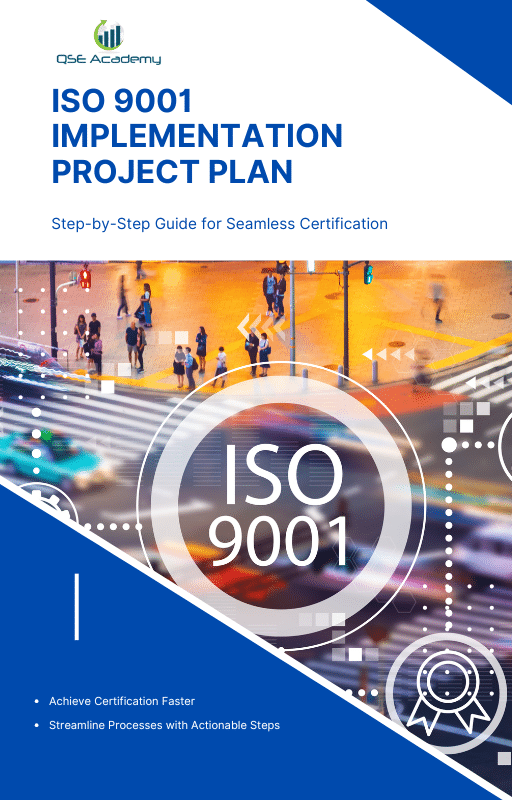Is AS9100 the same as ISO 9001?
Is AS9100 the same as ISO 9001?
If you’ve heard of ISO 9001 and AS9100, you might be wondering: Is AS9100 the same as ISO 9001? It’s a great question, especially if you’re exploring quality management systems for your business. While these two standards are closely related, they’re not identical. Think of them as being part of the same family, but with AS9100 taking things to a more specialized level.
ISO 9001 is the global standard for quality management systems (QMS), applicable to businesses in any industry. AS9100, on the other hand, is specifically tailored for the aerospace, aviation, and defense industries. It builds on the foundation of ISO 9001 but adds extra layers of requirements to address the unique challenges of these high-stakes fields.
In this article, we’ll unpack whether AS9100 is the same as ISO 9001, highlight their differences, and explain how they work together. Whether you’re curious about certifications, industry standards, or what’s best for your business, we’ve got you covered. Let’s dive in and make sense of it all!
What is ISO 9001?
To fully answer the question, “Is AS9100 the same as ISO 9001?”, let’s start with the basics and take a closer look at ISO 9001.
ISO 9001 is the world’s most widely recognized standard for quality management systems (QMS). It provides a framework for businesses to ensure they consistently meet customer requirements, improve processes, and deliver high-quality products or services. The standard is based on key principles like customer focus, leadership, engagement of people, and continuous improvement.
The beauty of ISO 9001 lies in its versatility. It’s designed to work for any organization, regardless of its size or industry. Whether you’re running a small family-owned bakery or a multinational manufacturing company, ISO 9001 helps you streamline operations and deliver reliable results.
Another reason ISO 9001 is so popular is its universal appeal. Certification to ISO 9001 shows customers and stakeholders that your business prioritizes quality. It’s a trust signal that demonstrates your commitment to doing things the right way.
So, where does AS9100 come into play? While ISO 9001 serves as the foundation for many quality standards, AS9100 takes it further by tailoring it specifically for the aerospace, aviation, and defense sectors. That’s where the key differences start to emerge. But before we compare the two, it’s important to understand what makes AS9100 unique—and why it builds on ISO 9001.
The question, “Is AS9100 the same as ISO 9001?”, often arises because AS9100 includes all of ISO 9001’s requirements but adds extra layers to address the specialized needs of industries where safety, reliability, and precision are critical. Let’s break that down further in the next section.
What is AS9100?
To understand whether AS9100 is the same as ISO 9001, let’s take a closer look at AS9100 and what makes it unique.
AS9100 is a quality management standard specifically developed for the aerospace, aviation, and defense industries. While it’s based on ISO 9001 and includes all of its core principles, AS9100 goes a step further by adding additional requirements tailored to the high-stakes needs of these industries. Think of it as ISO 9001 with extra features for industries where safety, precision, and reliability are absolutely critical.
For example, AS9100 introduces stricter requirements around risk management, product traceability, and supplier control. In the aerospace sector, even a small mistake can have huge consequences—so AS9100 focuses on reducing risks and ensuring consistent quality throughout the supply chain.
Another standout feature of AS9100 is its emphasis on regulatory compliance. Aerospace companies operate in a heavily regulated environment, and AS9100 is designed to help organizations meet these complex requirements. From preventing counterfeit parts to ensuring safety-critical processes are well-documented, AS9100 is all about addressing the unique challenges of aerospace manufacturing and services.
While ISO 9001 is a great starting point for general quality management, AS9100 takes it to the next level. It includes everything in ISO 9001 but adds specific clauses to ensure aerospace companies can meet customer expectations and comply with stringent industry standards.
So, is AS9100 the same as ISO 9001? Not quite. AS9100 builds on ISO 9001’s foundation but is tailored for the specialized needs of aerospace, aviation, and defense. In the next section, we’ll dive deeper into the key differences between these two standards to give you a clearer picture of how they compare.
Is AS9100 the Same as ISO 9001? Key Differences
Now that we know what ISO 9001 and AS9100 are, let’s tackle the big question: Is AS9100 the same as ISO 9001? The short answer is no—they’re not the same. While AS9100 is built on the foundation of ISO 9001, it includes additional requirements tailored specifically for the aerospace, aviation, and defense industries. Let’s break down the key differences between these two standards.
1. Industry Focus
The most obvious difference between ISO 9001 and AS9100 is their focus.
- ISO 9001 is a general quality management standard that applies to any industry. Whether you’re in manufacturing, retail, or healthcare, ISO 9001 provides a framework for delivering consistent quality and improving processes.
- AS9100, on the other hand, is exclusively designed for aerospace, aviation, and defense organizations. It builds on ISO 9001 by addressing the unique challenges of industries where safety, reliability, and compliance are critical.
So, while ISO 9001 works well for general quality management, AS9100 dives deeper into the specific needs of aerospace and related fields.
2. Additional Requirements in AS9100
Here’s where AS9100 really stands apart. It includes all the requirements of ISO 9001 but adds extra clauses to meet the high-stakes demands of the aerospace sector. These include:
- Risk Management: AS9100 places a stronger emphasis on identifying, assessing, and mitigating risks throughout the product lifecycle.
- Product Traceability: It ensures that every part, material, and component can be traced back to its source—a critical requirement in aerospace.
- Counterfeit Parts Prevention: AS9100 includes specific provisions to prevent counterfeit or unapproved parts from entering the supply chain.
- Supplier Flow-Down Requirements: It ensures that all suppliers in the chain meet strict quality standards, creating consistency across the board.
These additional requirements show why AS9100 is not the same as ISO 9001. It’s designed to go above and beyond general quality management to meet the specific demands of aerospace, where there’s no room for error.
3. Certification Processes
While both ISO 9001 and AS9100 require certification through an accredited third-party auditor, the process for AS9100 is more rigorous.
- ISO 9001 Certification: Focuses on verifying that your quality management system meets the standard’s general requirements.
- AS9100 Certification: Includes everything in ISO 9001 but also evaluates compliance with aerospace-specific requirements. Certification to AS9100 automatically certifies compliance with ISO 9001, but not the other way around.
This distinction underscores that while the two standards are related, AS9100 certification provides an extra layer of assurance for aerospace customers.
4. Safety and Regulatory Compliance
Aerospace industries operate under strict regulatory environments, and AS9100 is designed to help organizations navigate these requirements. While ISO 9001 includes general guidelines for compliance, AS9100 provides specific tools for managing safety-critical processes and ensuring adherence to aerospace regulations.
In summary, is AS9100 the same as ISO 9001? No. While AS9100 is built on ISO 9001’s foundation, it adds specialized requirements to address the unique challenges of aerospace, aviation, and defense. Think of ISO 9001 as the universal framework for quality, with AS9100 as the enhanced version tailored for industries where quality and safety are non-negotiable.
Next, let’s explore how these two standards work together and why understanding their relationship is essential for businesses in aerospace and beyond.
How ISO 9001 and AS9100 Work Together
Now that we’ve established that AS9100 is not the same as ISO 9001, let’s talk about how the two standards are connected and why they complement each other so well. In a sense, they’re like two layers of the same foundation—ISO 9001 forms the base, and AS9100 builds on top of it with industry-specific enhancements.
1. ISO 9001 as the Foundation
ISO 9001 provides the core principles of quality management that AS9100 is built on. These include:
- A strong focus on customer satisfaction.
- Risk-based thinking for proactive decision-making.
- Continuous improvement of processes and performance.
If you’re already familiar with ISO 9001, you’ll recognize these themes in AS9100 because they’re embedded throughout. Think of ISO 9001 as the starting point—a universal framework that lays the groundwork for managing quality effectively in any organization.
2. AS9100 Builds on ISO 9001
What sets AS9100 apart is the way it takes ISO 9001’s principles and tailors them to meet the aerospace industry’s unique challenges. By incorporating ISO 9001 as its foundation, AS9100 ensures that aerospace companies benefit from the same reliable framework while addressing additional requirements like:
- Enhanced Risk Management: Aerospace environments demand more rigorous risk controls, and AS9100 provides specific guidelines to address these needs.
- Strict Product Traceability: AS9100 ensures that every part and material used in production is fully traceable, which is crucial for safety and compliance.
- Supplier Accountability: While ISO 9001 emphasizes supplier relationships, AS9100 goes further by requiring detailed flow-down requirements to ensure consistency throughout the supply chain.
Essentially, AS9100 wouldn’t exist without ISO 9001. The two are deeply interconnected, with AS9100 acting as a specialized extension of ISO 9001.
3. Certification: One Standard Includes the Other
Here’s an important point to remember: when you achieve AS9100 certification, you automatically meet the requirements of ISO 9001. That’s because AS9100 fully incorporates ISO 9001. However, the reverse isn’t true—ISO 9001 certification doesn’t mean you comply with AS9100.
For businesses looking to expand into the aerospace, aviation, or defense sectors, pursuing AS9100 certification is a logical next step if they’re already ISO 9001-certified. It allows them to meet broader industry requirements while maintaining the same quality management foundation.
4. Benefits of Using Both Standards
By understanding how ISO 9001 and AS9100 work together, organizations can leverage both standards to their advantage. Here’s how:
- Streamlined Operations: ISO 9001 provides the tools to improve efficiency and consistency, while AS9100 ensures these improvements meet aerospace-specific expectations.
- Competitive Advantage: Companies that comply with both standards signal their commitment to quality and safety, making them more attractive to clients and partners in high-stakes industries.
- Flexibility for Growth: ISO 9001 lays the groundwork for success in any industry, and AS9100 positions businesses for growth in the aerospace sector.
By working together, ISO 9001 and AS9100 create a seamless system that ensures quality, safety, and compliance. So while AS9100 is not the same as ISO 9001, the two standards are deeply interconnected, and understanding their relationship is key for businesses looking to elevate their quality management practices.
Next, let’s explore why these differences—and connections—matter for businesses and how they can impact your organization’s success.
Why the Differences Between AS9100 and ISO 9001 Matter
So, we’ve established that AS9100 is not the same as ISO 9001, but why do these differences matter? For businesses deciding between the two—or considering both—understanding how they diverge is crucial. Let’s explore why these differences are so significant and what they mean for your organization.
1. Meeting Industry Expectations
One of the biggest reasons the differences matter is that AS9100 is designed specifically for the aerospace, aviation, and defense industries. These sectors demand an exceptional level of precision, reliability, and safety, far beyond what many other industries require.
For example:
- Aerospace manufacturers must ensure that every single part, no matter how small, meets strict quality standards.
- Aviation companies need rigorous processes to prevent counterfeit parts from entering the supply chain.
ISO 9001 lays the foundation for quality management, but it doesn’t address these unique needs. That’s why AS9100 isn’t the same as ISO 9001—it goes further to meet the higher stakes of these industries.
2. Building Customer Trust
In high-stakes industries like aerospace, trust is everything. Clients and partners want assurance that your business is capable of delivering safe, high-quality products that meet stringent regulatory requirements.
AS9100 certification provides that assurance. While ISO 9001 certification demonstrates a commitment to general quality management, AS9100 sends a stronger message—it shows that your organization is equipped to meet the specific demands of the aerospace sector. This distinction is why understanding the differences between AS9100 and ISO 9001 is so important for building credibility with clients.
3. Competitive Advantage in Aerospace
If you’re a supplier or manufacturer in the aerospace, aviation, or defense industries, AS9100 certification is often a must-have. Many companies in these sectors require their suppliers to be AS9100 certified before they’ll even consider working with them.
While ISO 9001 certification can help you stand out in general markets, AS9100 gives you a competitive edge in the aerospace industry. It’s a clear signal to potential clients and partners that your organization meets the highest standards of quality, safety, and compliance.
4. Ensuring Product Safety and Traceability
Another key reason these differences matter is the emphasis AS9100 places on safety and traceability. In aerospace, a single error can have catastrophic consequences. That’s why AS9100 includes specific requirements to:
- Prevent counterfeit or unapproved parts.
- Ensure every part and material is fully traceable.
- Mitigate risks at every stage of the product lifecycle.
ISO 9001 provides a strong foundation for quality management, but it doesn’t include these additional safeguards. This is why AS9100 isn’t the same as ISO 9001—it’s designed to address the unique risks of industries where safety is critical.
5. Aligning with Regulatory Requirements
Aerospace and defense industries operate under strict regulations that go beyond what ISO 9001 covers. AS9100 includes requirements specifically designed to help organizations comply with these regulations, making it essential for businesses in these sectors.
For example, if your organization needs to comply with aviation authority regulations or defense contracts, AS9100 provides the tools to meet those obligations seamlessly.
Understanding the differences between AS9100 and ISO 9001 is about more than just meeting certification requirements. It’s about ensuring your business can operate effectively in high-demand industries, build trust with customers, and maintain a competitive edge. These differences are why AS9100 is so valuable for aerospace, aviation, and defense organizations.
In the next section, we’ll help you decide which certification—or combination of certifications—is right for your business and its goals.
Which Certification Do You Need: ISO 9001 or AS9100?
Now that we’ve explored the differences between these two standards, you might be wondering: which one should your business pursue? Is AS9100 the same as ISO 9001 when it comes to what your organization needs, or is one more suited to your goals? Let’s break it down to help you decide.
1. ISO 9001: The Foundation for Quality Management
ISO 9001 is the go-to certification for any business looking to establish a solid quality management system (QMS). If your organization isn’t in the aerospace, aviation, or defense industries, ISO 9001 might be all you need to:
- Streamline processes and improve efficiency.
- Deliver consistent quality to customers.
- Build trust with clients and stakeholders through internationally recognized standards.
For example, if you’re in manufacturing, retail, healthcare, or technology, ISO 9001 offers a versatile framework that can be tailored to suit your industry. It’s an excellent choice for organizations of all sizes, from small startups to global enterprises.
2. AS9100: Built for Aerospace and Defense
If your business operates in the aerospace, aviation, or defense sectors, AS9100 isn’t just an option—it’s a necessity. While AS9100 is not the same as ISO 9001, it incorporates ISO 9001 as a foundation and adds industry-specific requirements to ensure safety, reliability, and compliance.
You’ll need AS9100 certification if:
- Your clients or contracts require it (which is common in aerospace).
- You’re part of a supply chain in aviation, space, or defense.
- Your business needs to meet strict regulatory and safety standards unique to these industries.
For example, a supplier manufacturing aircraft components would need AS9100 certification to meet the high expectations of their aerospace clients.
3. Should You Consider Both Certifications?
In some cases, businesses may benefit from pursuing both ISO 9001 and AS9100 certifications. Here’s why:
- ISO 9001: Provides a solid, general framework for quality management that applies across industries.
- AS9100: Adds a layer of aerospace-specific requirements for businesses operating in high-stakes environments.
If your organization wants to expand into aerospace markets while maintaining strong general quality management principles, achieving both certifications can provide a competitive edge. Remember, AS9100 certification automatically includes compliance with ISO 9001, so pursuing AS9100 effectively covers both bases.
4. Making the Right Choice for Your Business
To decide between ISO 9001 and AS9100, consider the following:
- Industry: Are you operating in or planning to enter the aerospace, aviation, or defense sectors? If yes, AS9100 is the way to go.
- Customer Expectations: Do your clients or contracts specifically require AS9100 certification?
- Business Goals: Are you looking to build a foundation for quality management (ISO 9001) or meet industry-specific demands (AS9100)?
At the end of the day, choosing the right certification depends on your business’s unique needs, goals, and industry requirements. While AS9100 is not the same as ISO 9001, both standards share a commitment to quality and continuous improvement. Whether you choose ISO 9001, AS9100, or both, you’ll be investing in tools that help your organization deliver excellence and build trust with customers.
In the next section, let’s tie everything together and provide a final answer to the big question: Is AS9100 the same as ISO 9001? Spoiler alert—it’s not, but they’re better together.
Conclusion: Is AS9100 the Same as ISO 9001?
So, let’s settle it once and for all—is AS9100 the same as ISO 9001? No, they are not the same, but they are closely connected. Think of AS9100 as ISO 9001’s specialized sibling, designed to address the unique challenges of aerospace, aviation, and defense industries. While ISO 9001 provides the foundational framework for quality management across all industries, AS9100 builds on that foundation with additional requirements tailored for high-stakes environments where safety, reliability, and compliance are critical.
ISO 9001 is perfect for organizations in any sector looking to improve processes, enhance customer satisfaction, and build trust through quality. On the other hand, AS9100 is a must for businesses in the aerospace world, where precision and strict adherence to regulations are non-negotiable.
The differences matter because they ensure that each standard is fit for its purpose. ISO 9001’s flexibility makes it a universal tool for quality management, while AS9100’s enhancements make it indispensable for companies operating in the high-demand aerospace industry.
If your business is in the aerospace sector, AS9100 certification not only demonstrates your commitment to quality but also opens the door to new opportunities, especially with clients who require this level of assurance. And if you’re certified to AS9100, you’re automatically ISO 9001 compliant—so it’s like getting two certifications in one.
In the end, whether you’re considering ISO 9001, AS9100, or both, the goal is the same: to create a quality management system that drives improvement, builds trust, and helps your organization succeed. So, while AS9100 is not the same as ISO 9001, understanding how they complement each other is key to choosing the right path for your business.
If you’re ready to take your quality management to the next level, start by assessing your industry needs and client expectations. No matter which certification you pursue, you’ll be making a valuable investment in your organization’s growth and success.
Looking for More Resources on ISO 9001?
Looking for ISO 9001 Resources Tailored to Your Industry?
If this article helped clarify ISO 9001, take the next step with our industry-focused tools designed to simplify your certification journey:
- ISO 9001 Documentation Kits by Industry: Whether you’re in manufacturing, construction, consulting, or healthcare — we have complete, ready-to-use documentation tailored for your sector.
- Online ISO 9001 Training: Learn how to implement ISO 9001 effectively with our easy-to-follow video lessons, real-world examples, and practical exercises.
- ISO 9001 Checklist: Download our step-by-step checklist to ensure your QMS meets all the 9001:2015 requirements from start to finish.
These resources are crafted to save you time, reduce stress, and help you achieve certification with confidence. Choose your industry and start now!

👋 Hi, I’m HAFSA, and for the past 12 years, I’ve been on a journey to
make ISO standards less intimidating and more approachable for everyone.
Whether it’s ISO 9001, ISO 22000, or the cosmetics-focused ISO 22716,
I’ve spent my career turning complex jargon into clear, actionable steps
that businesses can actually use. I’m not here to call myself an expert—I prefer “enthusiast” because I truly love what I do.
There’s something incredibly rewarding about helping people navigate food safety and quality management systems
in a way that feels simple, practical, and even enjoyable.
When I’m not writing about standards, you’ll probably find me playing Piano 🎹, connecting with people, or diving into my next big project💫.
I’m an engineer specialized in the food and agricultural industry
I have a Master’s in QHSE management and over 12 years of experience as a Quality Manager
I’ve helped more than 15 companies implement ISO 9001, ISO 22000, ISO 22716, GMP, and other standards
My clients include food producers, cosmetics manufacturers, laboratories, and service companies
I believe quality systems should be simple, useful, and efficient
Outside of work, I play piano and love learning something new every day
Let’s make ISO less about stress and more about success! 🙏

